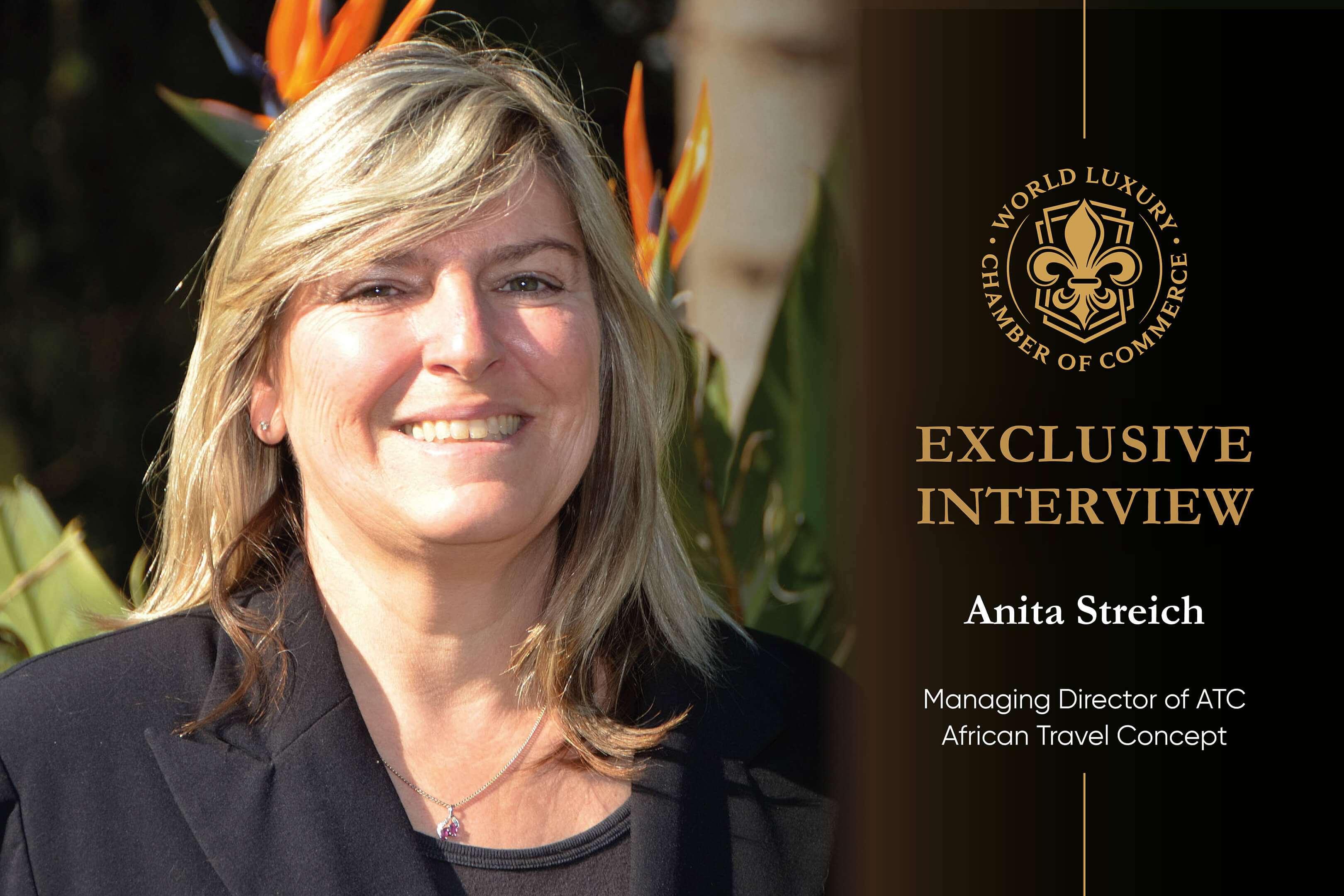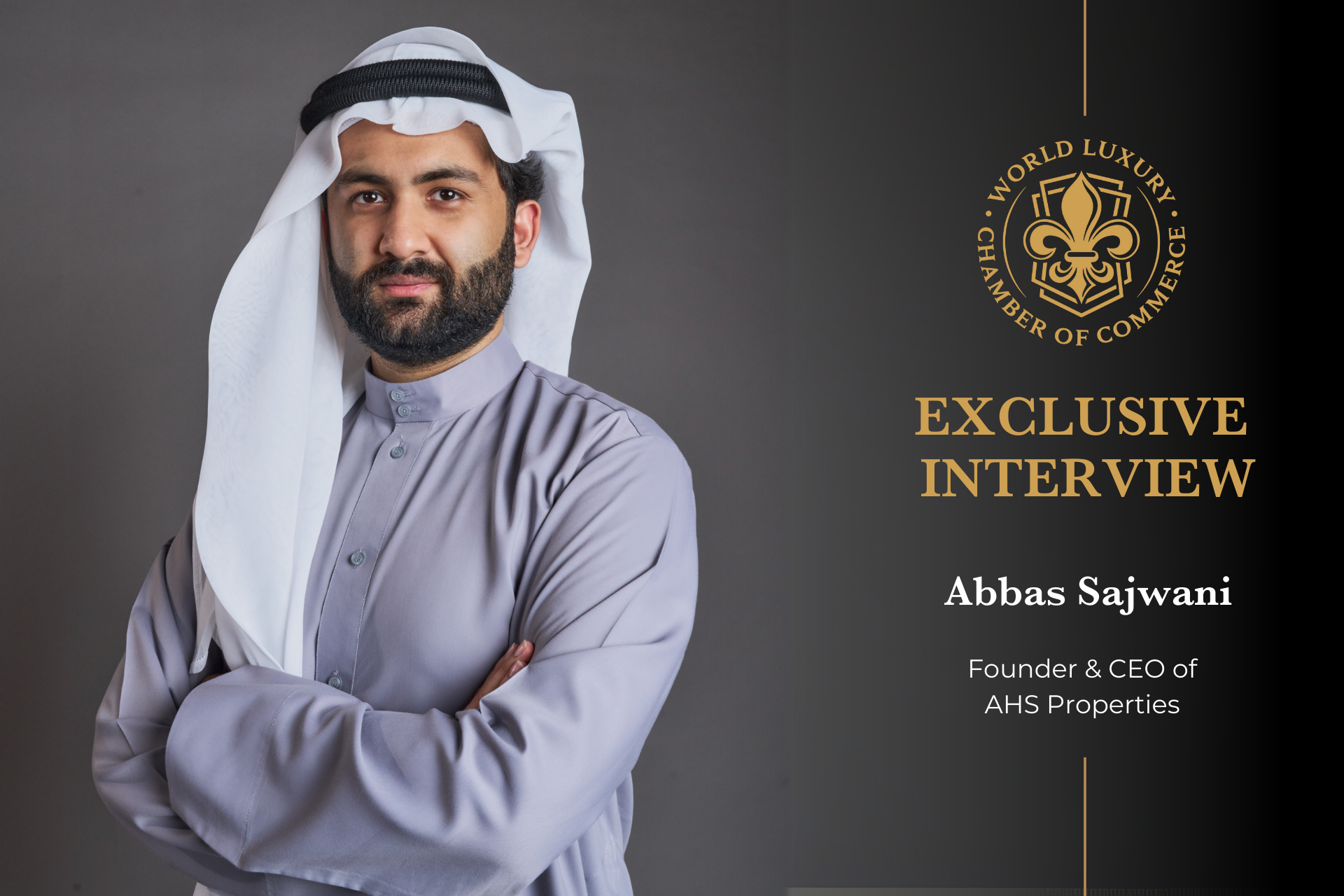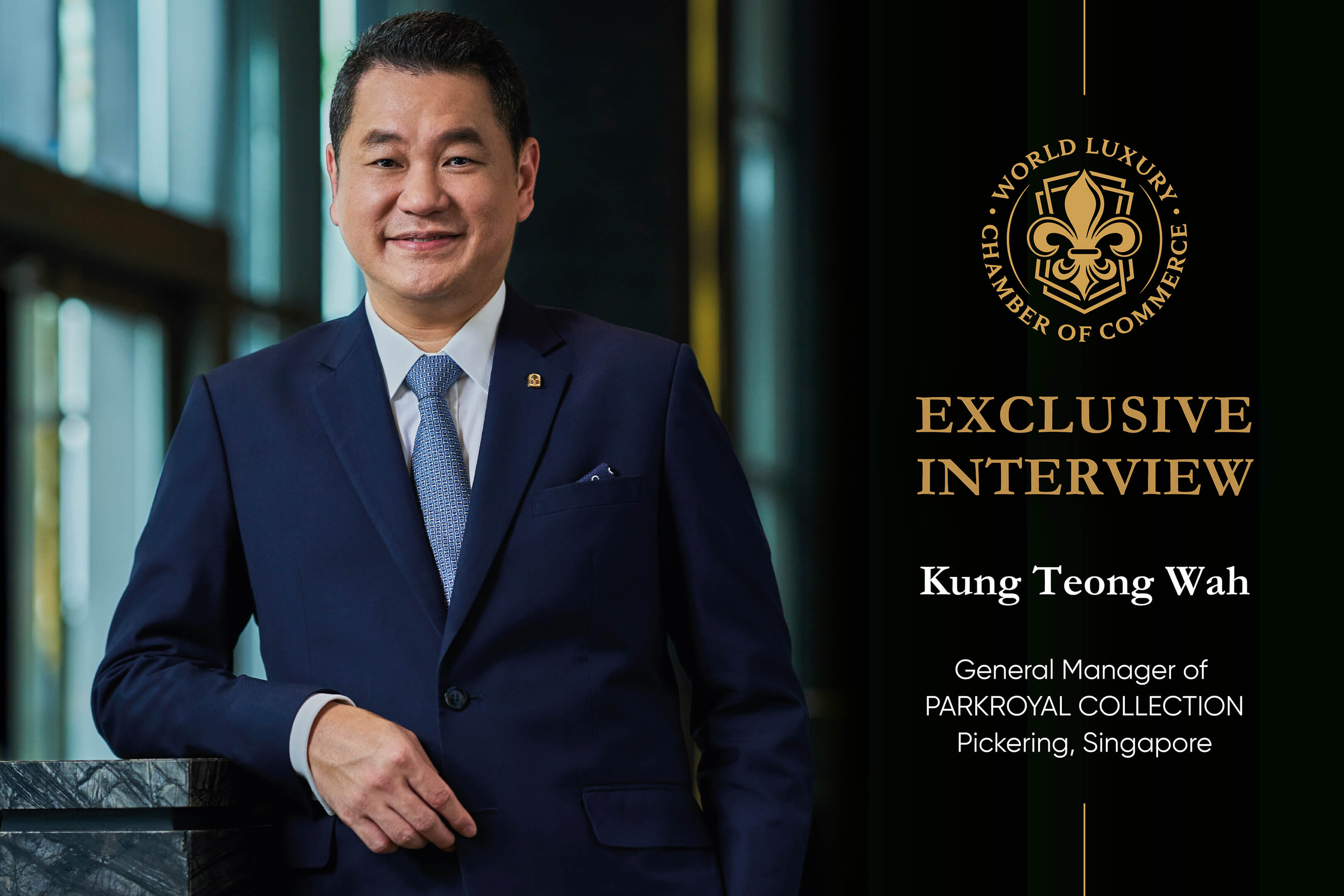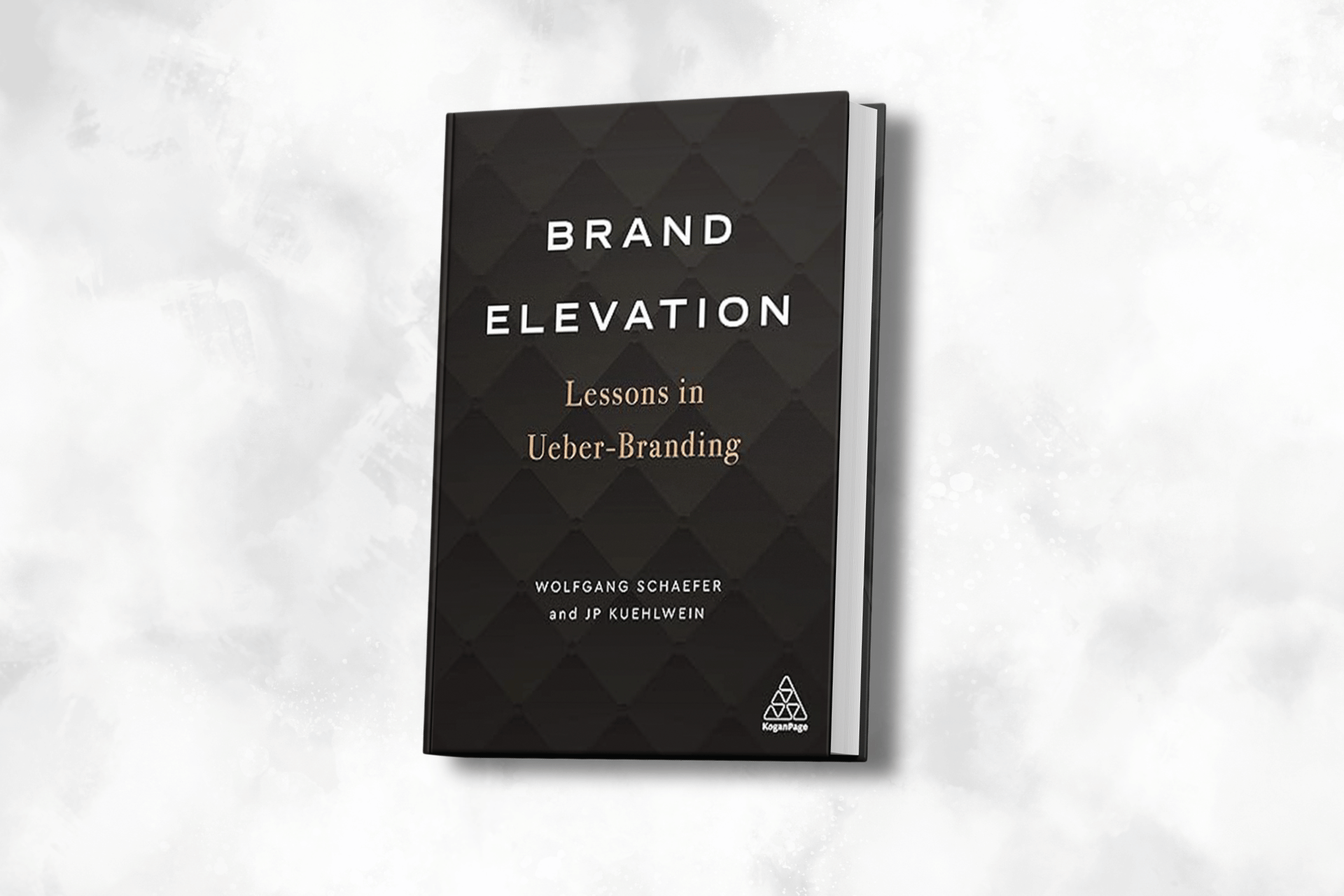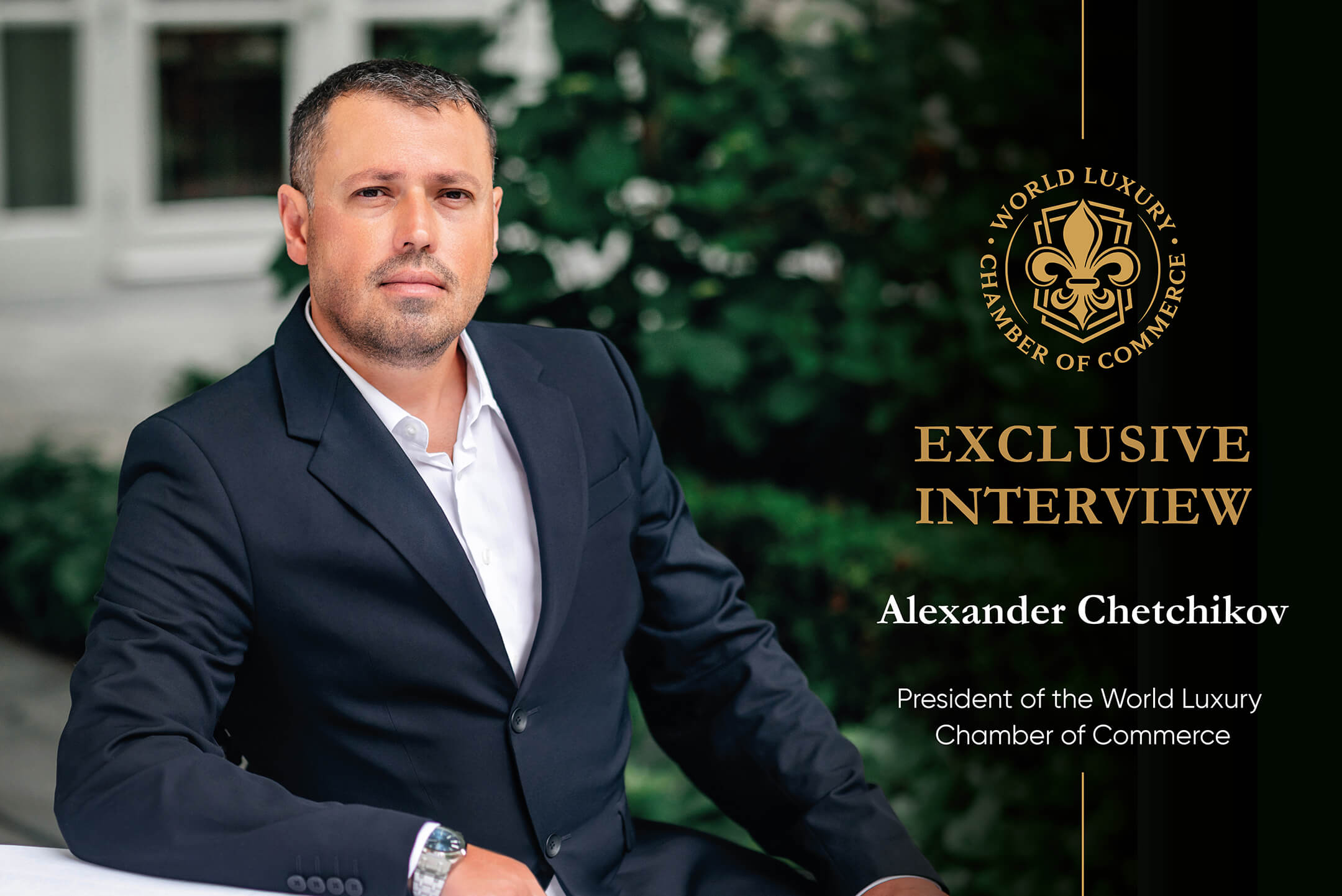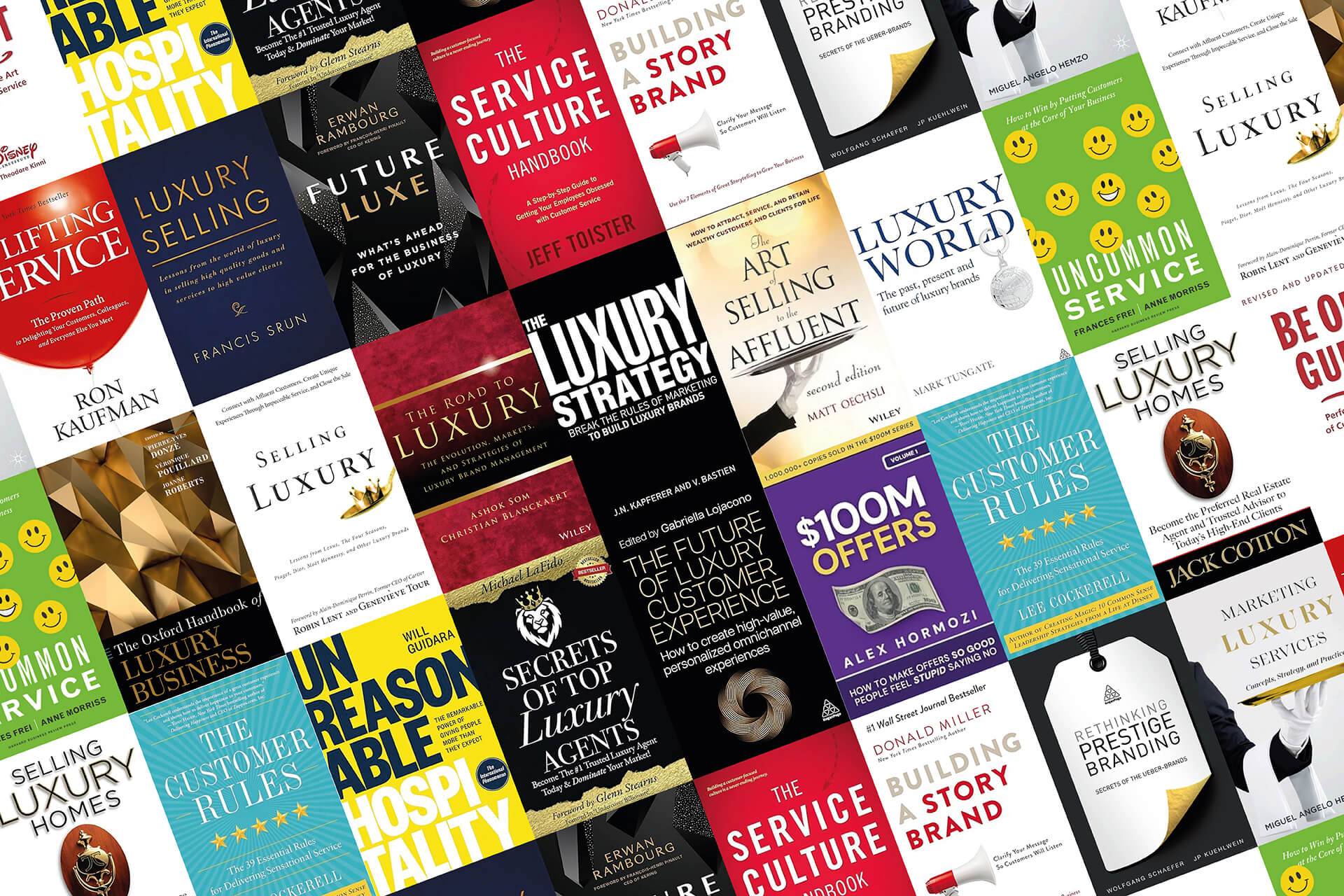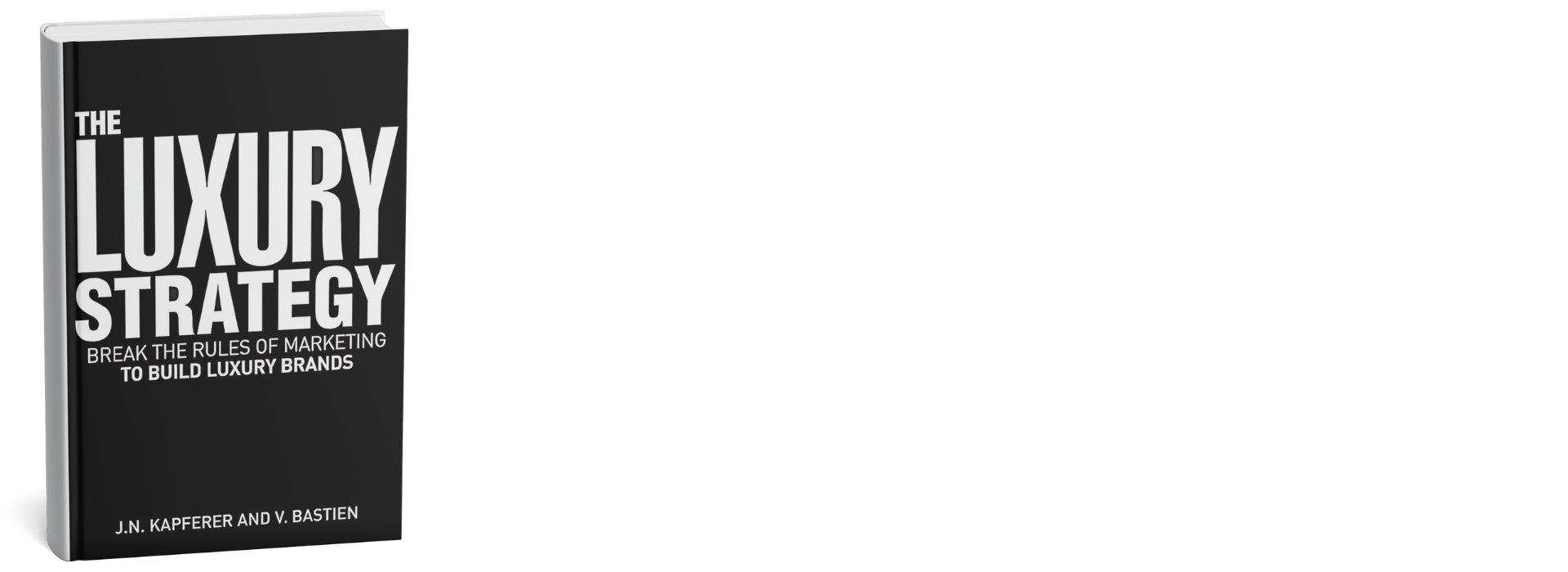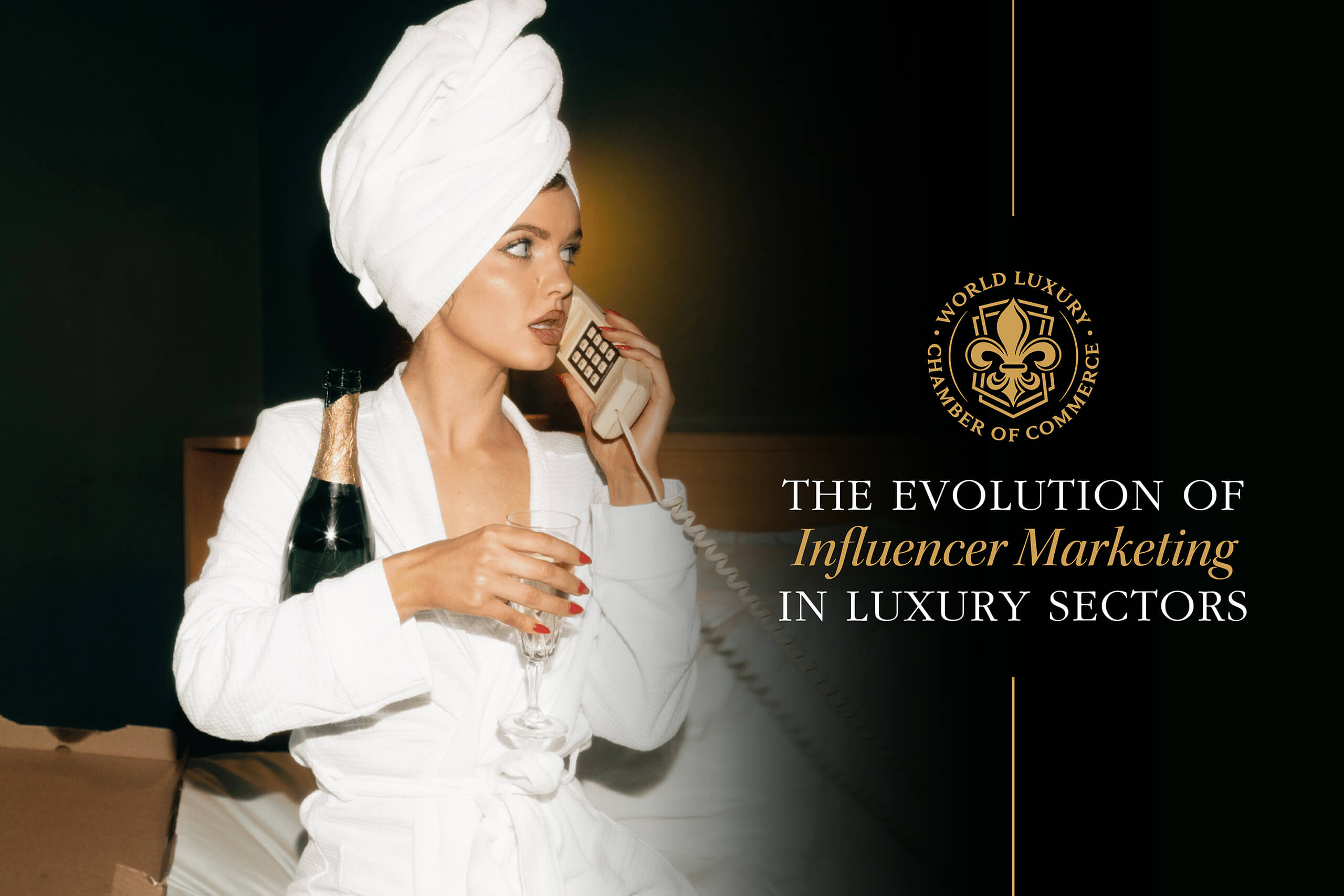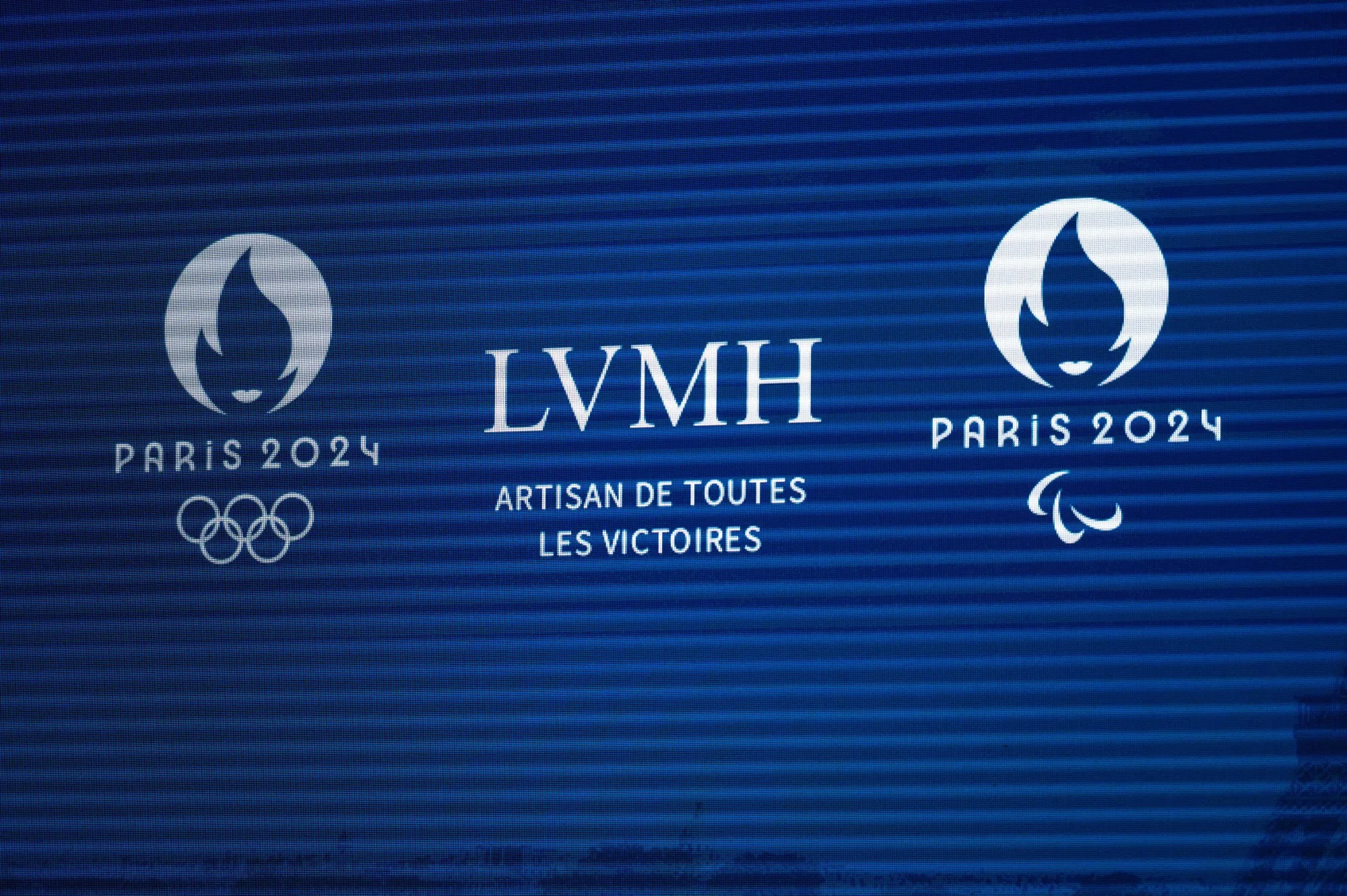In this exclusive interview, Alexander Chetchikov, President of the World Luxury Chamber of Commerce, sits down with Anita Streich, Managing Director of ATC African Travel Concept. RecognizeIn this exclusive interview, Alexander Chetchikov, President of the World Luxury Chamber of Commerce, sits down with Anita Streich, Managing Director of ATC African Travel Concept. Recognized as Southern Africa’s Best Luxury Safari Tour Operator, ATC specializes in creating unforgettable, bespoke safari experiences across premier wildlife destinations. Anita shares insights on ATC’s dedication to personalized travel, conservation, and innovation, offering an in-depth look at the luxury safari industry’s future and the exceptional experiences ATC delivers.

Alexander Chetchikov: Anita, luxury safari travel has evolved significantly in recent years. How would you say the modern definition of luxury in safari experiences has changed, and in what ways has ATC African Travel Concept contributed to this transformation?
Anita Streich: Today’s luxury safari is more than just exclusive accommodations; it’s about providing immersive, transformative experiences that bring clients closer to the essence of Southern Africa. At ATC, we’ve embraced this evolved definition of luxury by combining comfort and elegance with a genuine connection to the land, wildlife, and cultures that define our region. Our goal is for clients to experience the majesty of the African wilderness with unparalleled service, while also feeling a sense of place and purpose in each destination. Through this approach, we offer an experience that is both authentically African and truly luxurious.
AC: ATC has built a stellar reputation for its bespoke safari experiences. Can you walk me through the process of designing these highly personalized journeys?
AS: Creating a bespoke journey for each client starts with understanding their unique vision of a perfect safari. From adrenaline-seeking adventures to serene retreats, our planning process takes every preference into account. Our team consults closely with each client, tailoring itineraries that reflect individual interests, whether it’s tracking the Big Five, indulging in local cuisine, or enjoying secluded beach escapes in Mozambique. By leveraging our deep regional expertise and exclusive connections, we craft journeys that not only meet but exceed the expectations of even the most discerning travelers.
AC: With sustainability playing an increasingly vital role in luxury tourism, how does ATC incorporate conservation and community support into its operations?
AS: Sustainability is central to ATC’s mission. We’re deeply committed to conservation and community upliftment, and our partnerships with local initiatives are a reflection of that. Projects like Ocean View Primary School and Kerith Retreat exemplify our dedication to making a positive impact. We also work to minimize environmental impact through practices like sourcing locally and reducing waste. Each safari is designed to be respectful of the natural environment and to support the communities who steward these lands, allowing our clients to enjoy a meaningful and responsible travel experience.
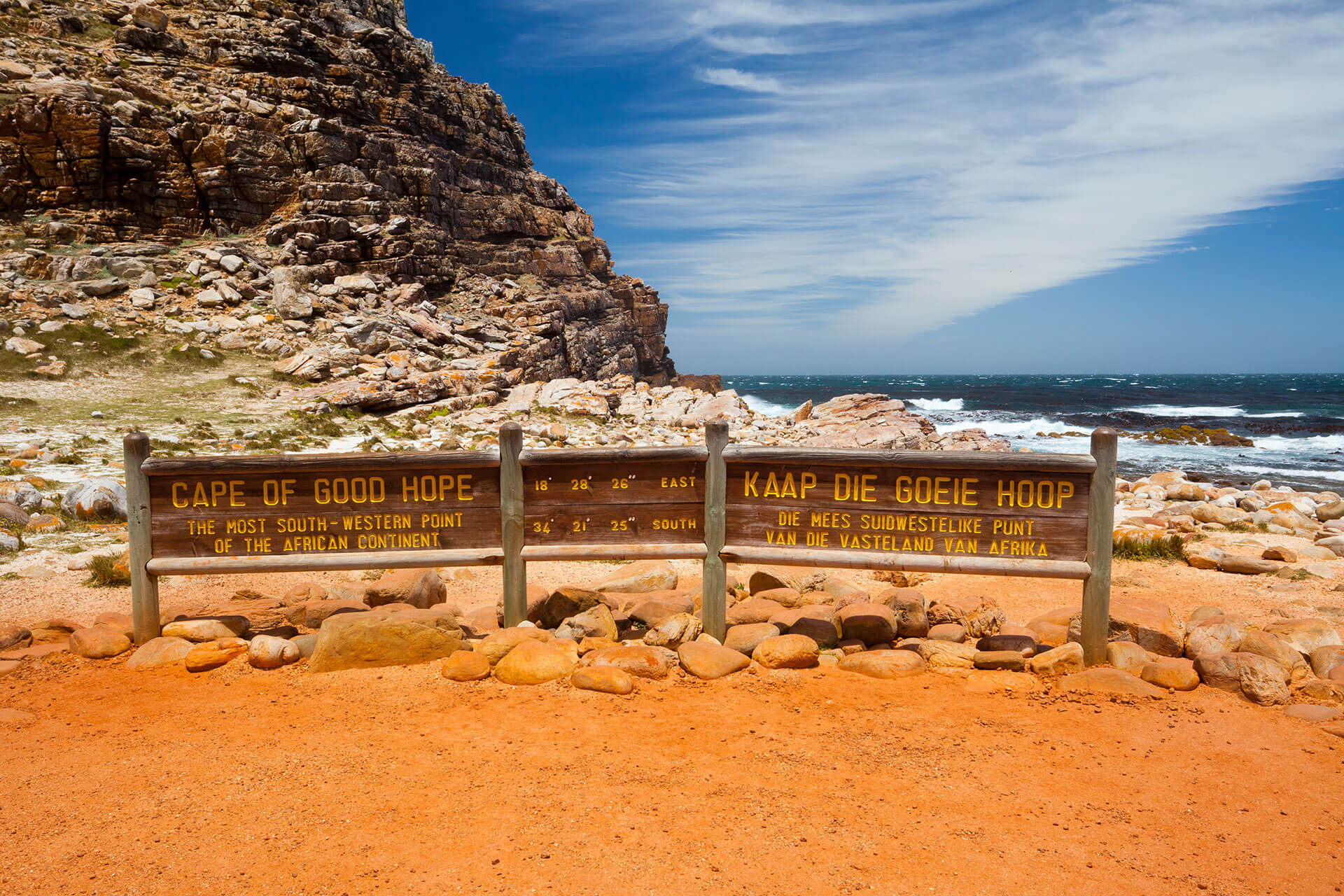
AC: Could you share some lesser-known destinations in Southern Africa that you believe would captivate high-net-worth travelers seeking exclusivity and novelty?
AS: While iconic destinations are always appealing, there are hidden gems in Southern Africa that offer a fresh perspective on luxury travel. Zambia’s remote wildlife reserves and walking safaris provide a thrillingly intimate encounter with nature, while Mozambique’s pristine coastlines offer a serene contrast to the bush experience. For those seeking exclusivity and novelty, we recommend exploring these lesser-known destinations where luxury blends seamlessly with solitude and natural beauty. These places allow our clients to experience Africa’s magnificence in its purest form, away from the crowds.
AC: As someone who has led ATC to such success, what do you consider the most important leadership qualities for achieving and maintaining a position of influence in luxury travel?
AS: Leading ATC has shown me that success in luxury travel requires vision, adaptability, and a commitment to integrity. It’s essential to stay attuned to client needs and market trends while remaining true to our core values of respect for people, culture, and nature. A great leader in this industry must not only inspire a team to deliver exceptional service but also foster a sense of responsibility toward the communities and ecosystems we engage with. This balance of passion and ethical commitment is what has allowed ATC to thrive and stand out.
AC: ATC offers everything from traditional safari experiences to more thrilling adventures. What are some of the most unique or unconventional options clients can enjoy with ATC?
AS: ATC specializes in creating safari experiences that go beyond the traditional, offering clients a diverse array of activities across Southern Africa. From exclusive, guided bush walks to private culinary experiences showcasing local flavors, each activity is designed to immerse clients in the richness of the region. Our guests can enjoy everything from game drives and scenic river cruises to cultural tours that highlight Southern Africa’s vibrant heritage. In addition, ATC prioritizes sustainable practices, ensuring that these unique experiences support local communities and preserve the natural beauty of the areas we explore. By combining adventure with luxury, we create unique opportunities for travelers to experience Africa’s diverse landscapes, wildlife, and cultures in unforgettable ways.

AC: How would you describe the profile of today’s luxury safari traveler? What unique demands or preferences have you noticed, and how has ATC adapted its offerings to meet these expectations?
AS: Today’s luxury safari traveler is looking for more than just high-end accommodations—they seek authenticity, privacy, and sustainability. Our clients want to engage deeply with their surroundings, enjoying exclusive access to private reserves and personalized itineraries that speak to their individual interests. ATC has adapted to these demands by focusing on creating meaningful experiences that honor the natural and cultural heritage of Southern Africa. We find that travelers today want to feel that their journey leaves a positive impact, which is why we emphasize responsible tourism practices throughout our operations.
AC: Looking to the future, where do you see the luxury safari sector headed over the next five years? What trends or initiatives do you think will shape this market, and how is ATC positioning itself to lead these changes?
AS: The next five years will see a continued shift toward sustainability, privacy, and innovation in the luxury safari sector. Travelers will increasingly seek eco-conscious options and high-tech conveniences that enhance their safari experiences without detracting from the authenticity of the journey. ATC is preparing for this future by embracing sustainable practices and developing exclusive offerings that cater to evolving preferences. By staying ahead of these trends, we aim to set the standard for luxury safaris, ensuring our clients experience the best that Southern Africa has to offer.

This conversation with Anita Streich reveals ATC African Travel Concept’s focus on blending luxury with authenticity in every safari experience. Through her insights, we see ATC’s dedication to personalized service, environmental stewardship, and innovation—key elements that set ATC apart in the world of luxury travel. As Southern Africa’s leading safari tour operator, ATC creates unforgettable journeys that allow travelers to explore iconic destinations and witness extraordinary wildlife while making a positive impact. Discover your own African adventure at https://www.africantravelconcept.com/


